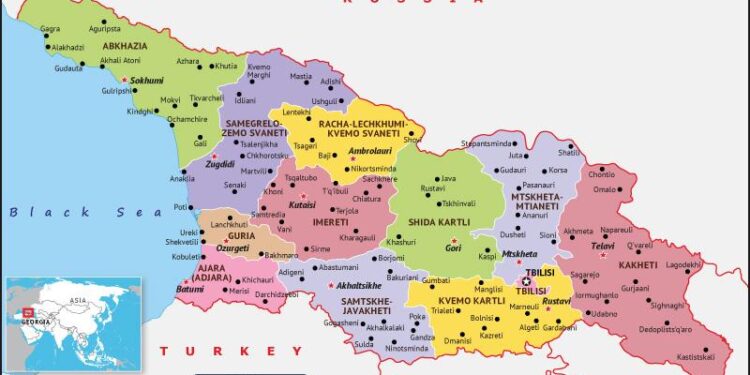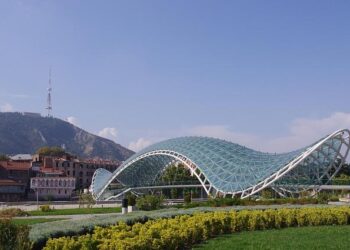Nestled at the crossroads of Europe and Asia, the nation of Georgia is increasingly drawing global attention-not only as the likely cradle of winemaking but also as the birthplace of one of the 20th century’s most infamous leaders, Joseph Stalin. Reason Magazine’s latest exploration delves into how this ancient land’s rich history and culture have shaped both the world’s oldest fermented grape tradition and the rise of a complex political figure whose impact continues to resonate. This article unpacks Georgia’s dual legacy, offering fresh insights into the origins of wine and the early life of Stalin against the backdrop of the country’s unique historical landscape.
Georgia Stakes Its Claim as the Ancient Cradle of Winemaking
Archaeological discoveries across Georgia have unmasked traces of winemaking dating back nearly 8,000 years, positioning the nation as a strong contender for the title of the world’s earliest wine producer. Excavations in the fertile valleys of the South Caucasus region have revealed ancient clay vessels, adorned with grape residue, offering a tangible link to humanity’s first fermentation experiments. This breakthrough reshapes our understanding of viticulture’s origins and highlights Georgia’s millennia-old relationship with the vine, a tradition still deeply embedded in its culture today.
- Oldest known wine jars: Pottery dating back to 6000 BCE discovered at sites like Gadachrili Gora.
- Traditional methods still alive: Use of qvevri-large clay vessels buried underground for fermentation.
- UNESCO recognition: Georgian winemaking included in the Intangible Cultural Heritage list.
Beyond its ancient wine legacy, Georgia’s modern historical footprint is equally remarkable, having been the birthplace of one of the 20th century’s most influential leaders, Joseph Stalin. This juxtaposition of a rich vinicultural past with a complex political heritage solidifies Georgia’s unique role on the world stage. The country continues to cultivate both its ancient traditions and intricate narratives, standing as a living museum of humanity’s intertwined cultural and historical evolution.
| Aspect | Significance | |
|---|---|---|
| Winemaking Age | Circa 6000 BCE | |
| Winemaking Technique | Qvevri clay fermentation | |
| Cultural Recognition | UNESCO Intangible Cultural Heritage | |
| Historical Figure | Birthplace of Joseph Stalin |
| Category | Influence on Stalin | Significance |
|---|---|---|
| Language | Fluent Georgian | Strengthened regional support base |
| Family | Modest clergy background | Shaped early discipline and ambitions |
| Culture | Georgian resilience | Reflected in authoritarian leadership style |
What Georgia’s Dual Legacy Means for Tourism and Cultural Preservation
Georgia’s unique historical narrative blends the ancient art of winemaking with the complex legacy of one of the 20th century’s most controversial figures. This juxtaposition draws a diverse array of tourists-from oenophiles eager to explore the cradle of viticulture to historians and political enthusiasts keen on tracing the roots of Joseph Stalin. The country’s efforts to market these dual identities have influenced local preservation practices, creating a careful balance between celebrating cultural achievements and acknowledging darker chapters.
Tourism boards and cultural institutions emphasize several key areas to maintain this balance:
- Winemaking Heritage Sites: Ancient vineyards and traditional qvevri clay pot wineries continue to flourish, offering tastings and educational tours that highlight Georgia’s 8,000-year-old tradition.
- Historical Museums and Memorials: Multiple Stalin-related sites, including his birthplace and childhood home in Gori, remain open for visitors, providing context while generating debate on remembrance vs. glorification.
- Community-Led Preservation: Local initiatives engage citizens in storytelling and heritage conservation, ensuring an authentic connection to both wine culture and historical memory.
| Attraction Type | Visitor Experience | Preservation Focus |
|---|---|---|
| Wine Museums | Interactive tastings and ancient viticulture demonstrations | Ancient traditions and regional grape varieties |
| Stalin Museums | Guided historical tours with archival exhibits | Historical accuracy and critical engagement |
| Local Festivals | Cultural celebrations featuring food, music, and storytelling | Community participation and heritage continuity |
Future Outlook
As the cradle of ancient viticulture and the birthplace of one of history’s most controversial figures, Georgia continues to captivate scholars and travelers alike. From its rolling vineyards that echo millennia of winemaking tradition to the complex legacy of Joseph Stalin, this Caucasus nation remains a fascinating intersection of culture, history, and identity. Whether celebrated for its contributions to global heritage or scrutinized through the lens of political history, Georgia’s story is far from finished-and it will undoubtedly continue to shape conversations for years to come.
















